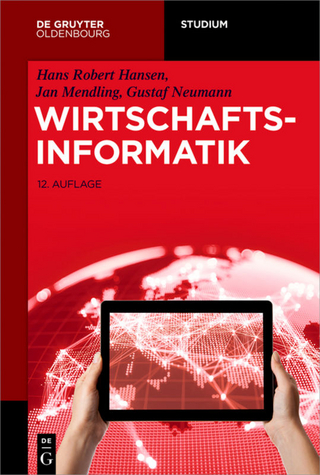
Cyberprotest
Routledge (Verlag)
978-0-415-29785-1 (ISBN)
Ever since the anti-globalisation protests in Seattle in 1999 the adoption of new information and communications technologies (ICTs) by social movement activists has offered the prospect for the development of global cyberprotest. The Internet with its transnational many-to-many communication facility offers a revolutionary potential for social movements to go online and circumvent the 'official' messages of political and commercial organisations and the traditional media, by speaking directly to the citizens of the world. Furthermore the use of electronic mail (e-mail), mailing lists, websites, electronic forums and other online applications provide powerful media tools for co-ordinating the activity of often physically dispersed movement actors. Moreover, ICTs may also contribute to the important function of social movements of shaping collective identity and countering the claims and arguments of established political interests.
A growing body of literature during the last decades of the twentieth century attests to the significant impact SMs have had upon the restructuring of the political landscape. Most of that literature addresses the more traditional actors and institutions (e.g. parliaments, political parties, bureaucracy etc.). Less attention has been devoted to those manifestations of political action that are concentrated around social movements and all kinds of more or less institutionalised and sustainable forms of citizen mobilisation. This book is a collection of cases that take a critical look into the way ICTs are finding their way into the world of social movements
Wim van de Donk is Professor of Public Administration at Tilburg University, and member of the Scientific Counsel for Government Policy in The Hague. Brian. D. Loader is Director of the Community Informatics Research & Applications Unit (www.cira.org.uk) based at the University of Teesside, UK. He is also Editor of the international journal Information, Communication & Society (www.infosoc.co.uk). Paul G. Nixon is a Senior Lecturer in Political Science at the Haagse Hogeschool, Den Haag, Netherlands. Dieter Rucht is Professor of Sociology at the Social Science Research Center Berlin.
1. Introduction 2. New Media, Citizenship and Social Movements Part One: Changing the levels and the domains of political action 3. Gobal-protesters: Virtual or Real? The Role of the Internet in Shaping the Anti-globalisation Movement 4. Is the Market the New Battle Ground for Political Campaigning? Part two: Changing strategies and stratagems: action and activism in the information age 6. Meta-movements: New Technologies and New Forms of Coalition, Co-operation and Co-ordination in the Social Movement 'Industry' 7. "'Times are Changing': Media Strategies of Protest Groups since the 1960s" 8. The Internet, Global Mobilization, and Movement Message Frames: Organizational Similarities and Communicational Differences between Protest Events and Issue Campaigns The activists in between: New Media, Social Movements and Change 9. The Activists in Between: New Media, Social Movements and Change 10. Social Movements and the Media. September 1999, from Portugal to East-Timor 11. The Expert Always Knows Best? ATTAC's Use of the Internet as a Tool to Facilitate New Virtual Forms of Protest 12. Tales from Italy Part Three: Citizenship, Identity, and Virtual Movements 13. Citizenship, Democracy and New States of Welfare 14. The Woman's Movement Online: A Study into the Uses of Internet by Women's Organizations in the Netherlands 15. The Grey Panthers wants Political Influence - Democratic Effects of Utilising ICTs 16. Disembodied Citizenship? Re-@ccessing Disabled People's Voices in Portugal 17. Conclusion
| Erscheint lt. Verlag | 27.5.2004 |
|---|---|
| Zusatzinfo | 2 Line drawings, black and white |
| Verlagsort | London |
| Sprache | englisch |
| Maße | 138 x 216 mm |
| Gewicht | 620 g |
| Themenwelt | Mathematik / Informatik ► Informatik |
| Naturwissenschaften | |
| Sozialwissenschaften ► Politik / Verwaltung | |
| Wirtschaft ► Betriebswirtschaft / Management ► Wirtschaftsinformatik | |
| ISBN-10 | 0-415-29785-0 / 0415297850 |
| ISBN-13 | 978-0-415-29785-1 / 9780415297851 |
| Zustand | Neuware |
| Informationen gemäß Produktsicherheitsverordnung (GPSR) | |
| Haben Sie eine Frage zum Produkt? |
aus dem Bereich


